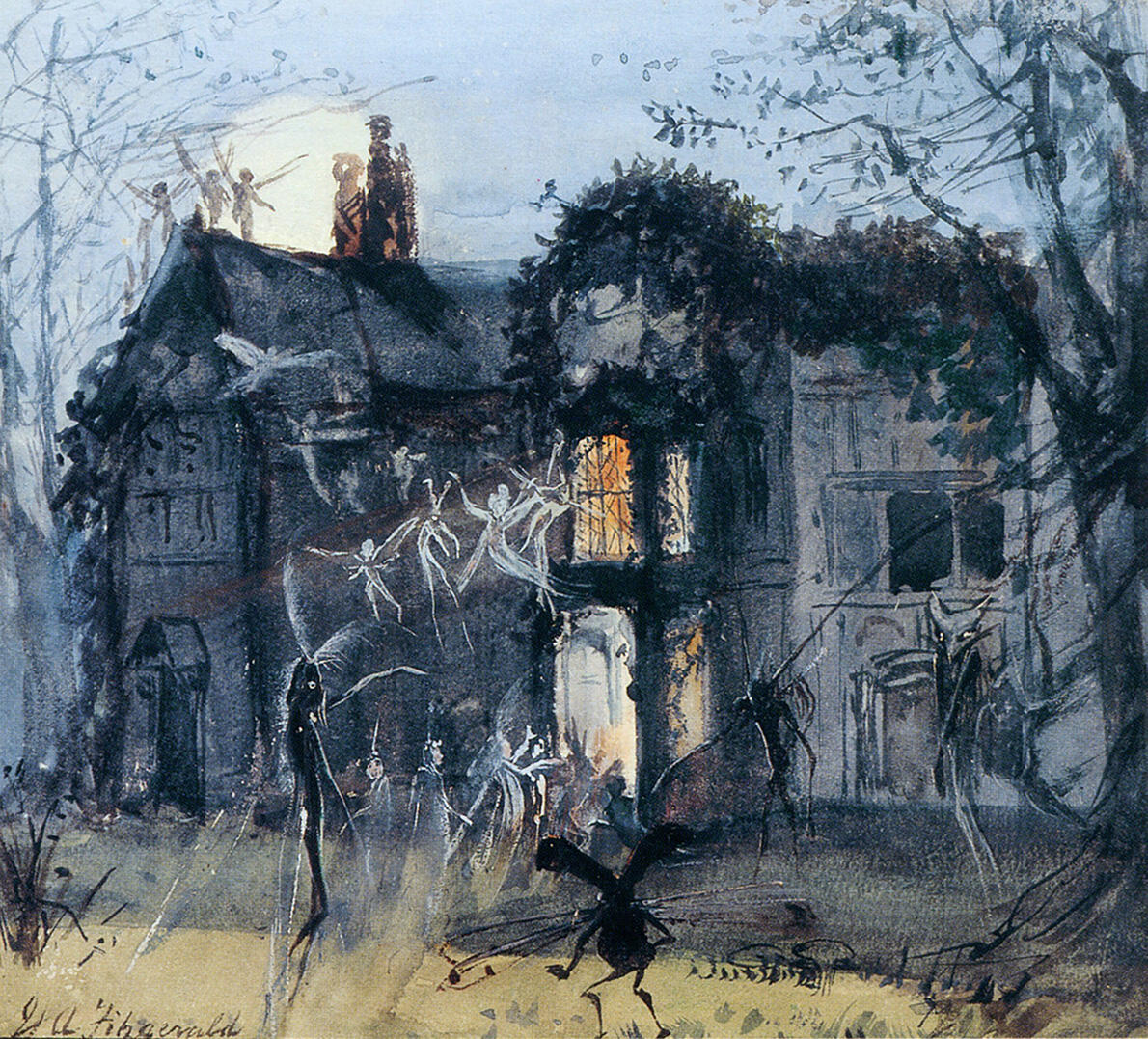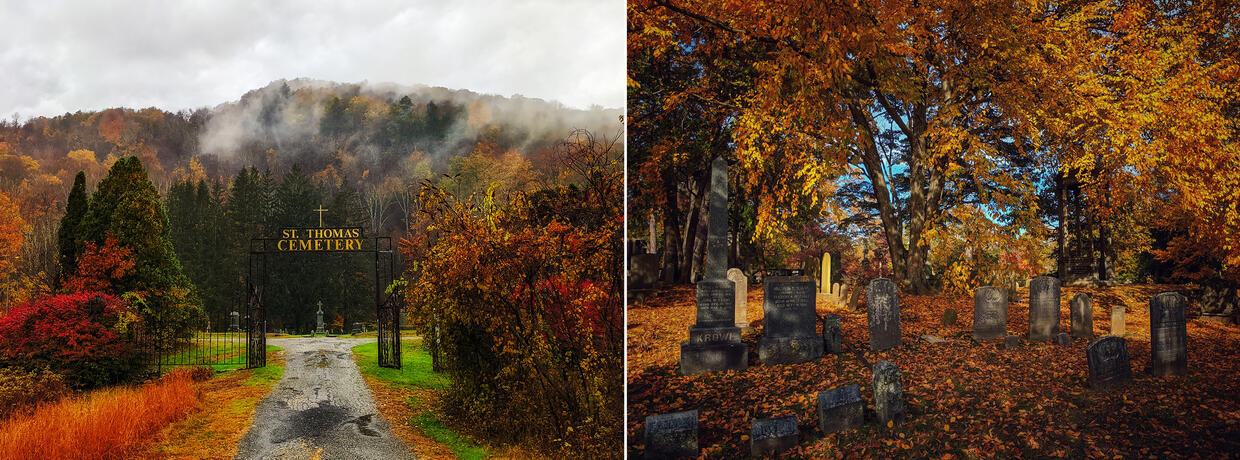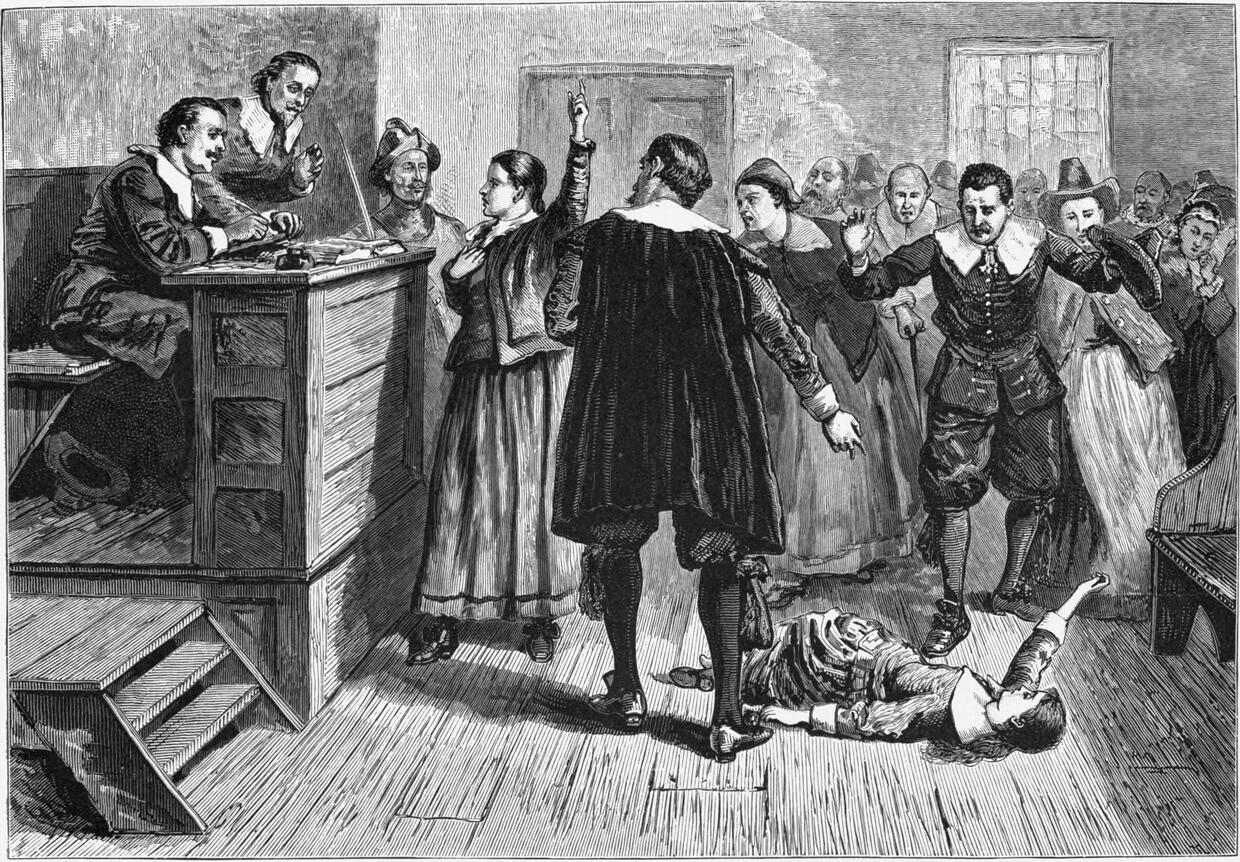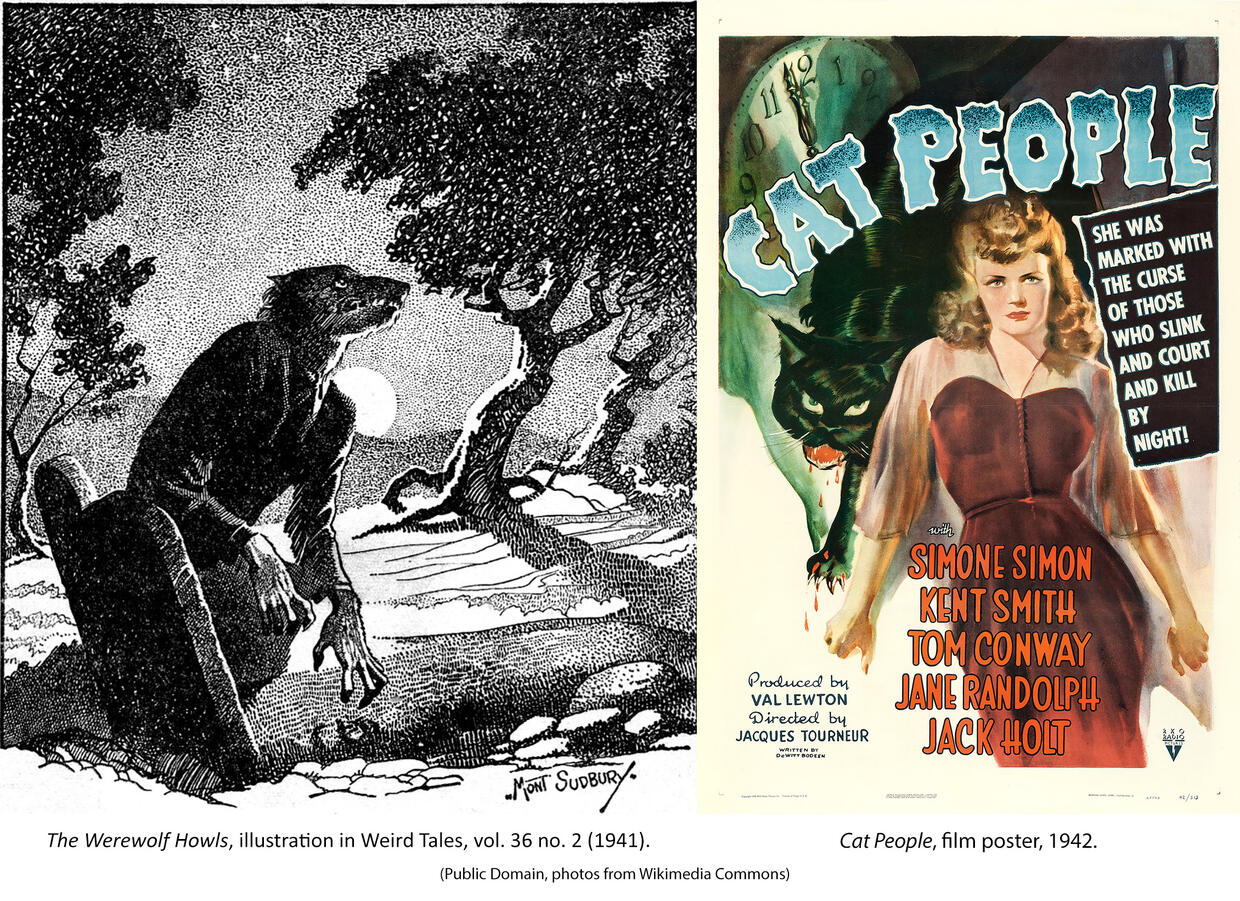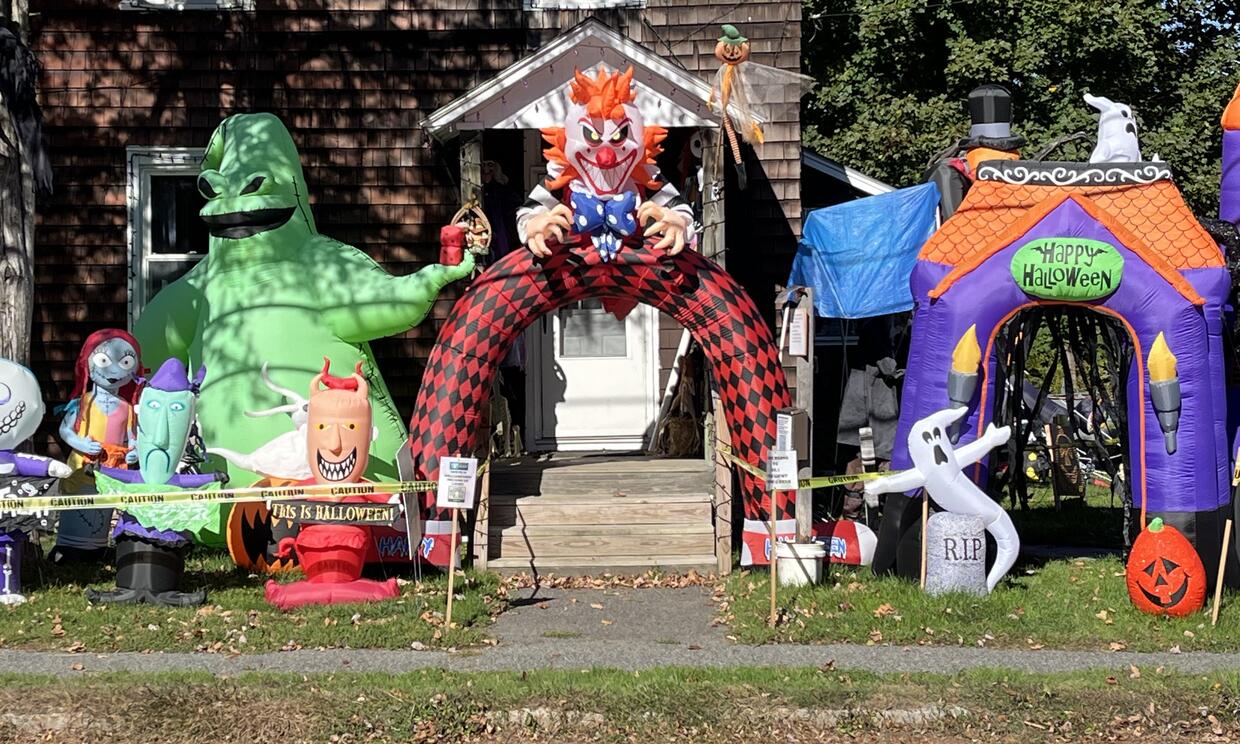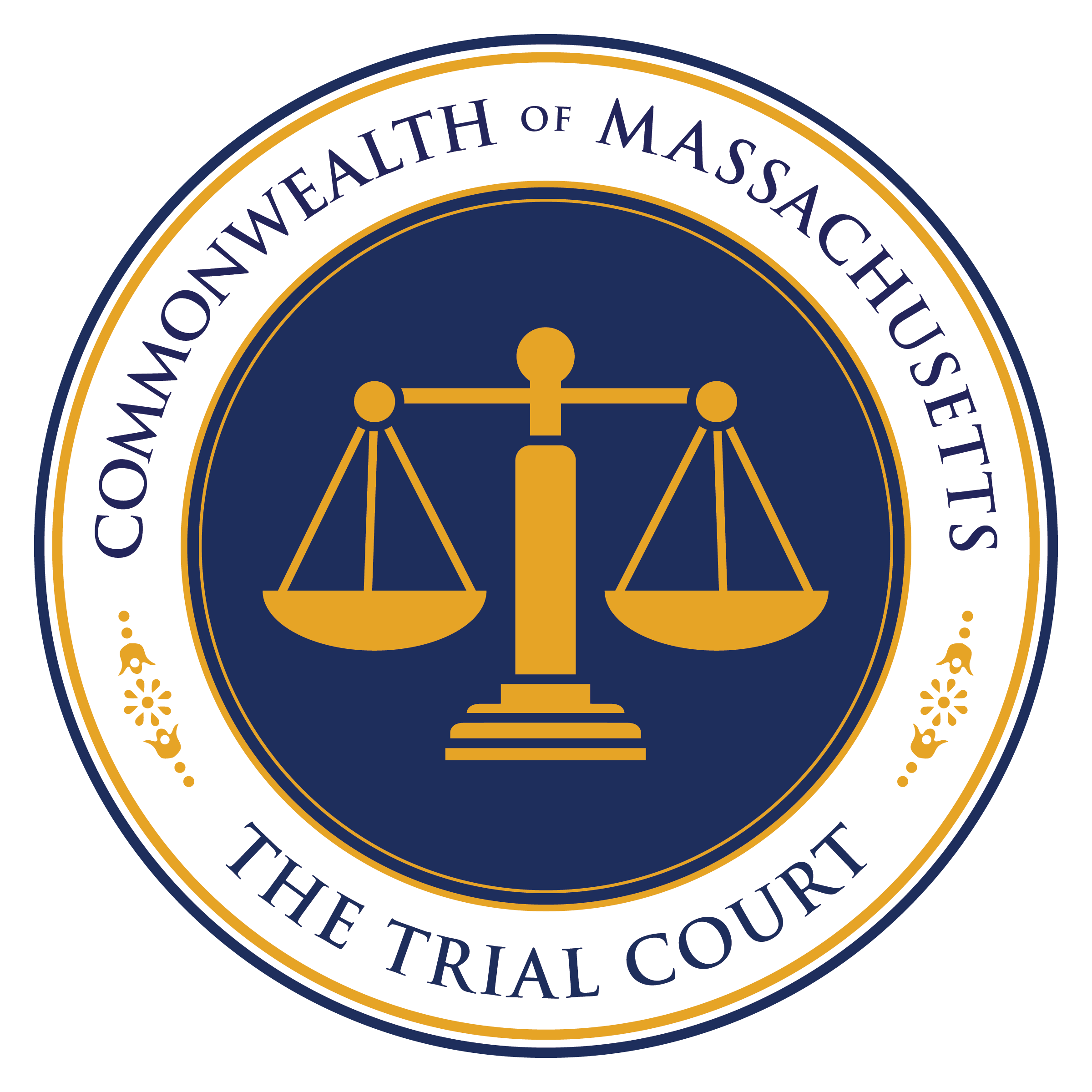- Trial Court Law Libraries
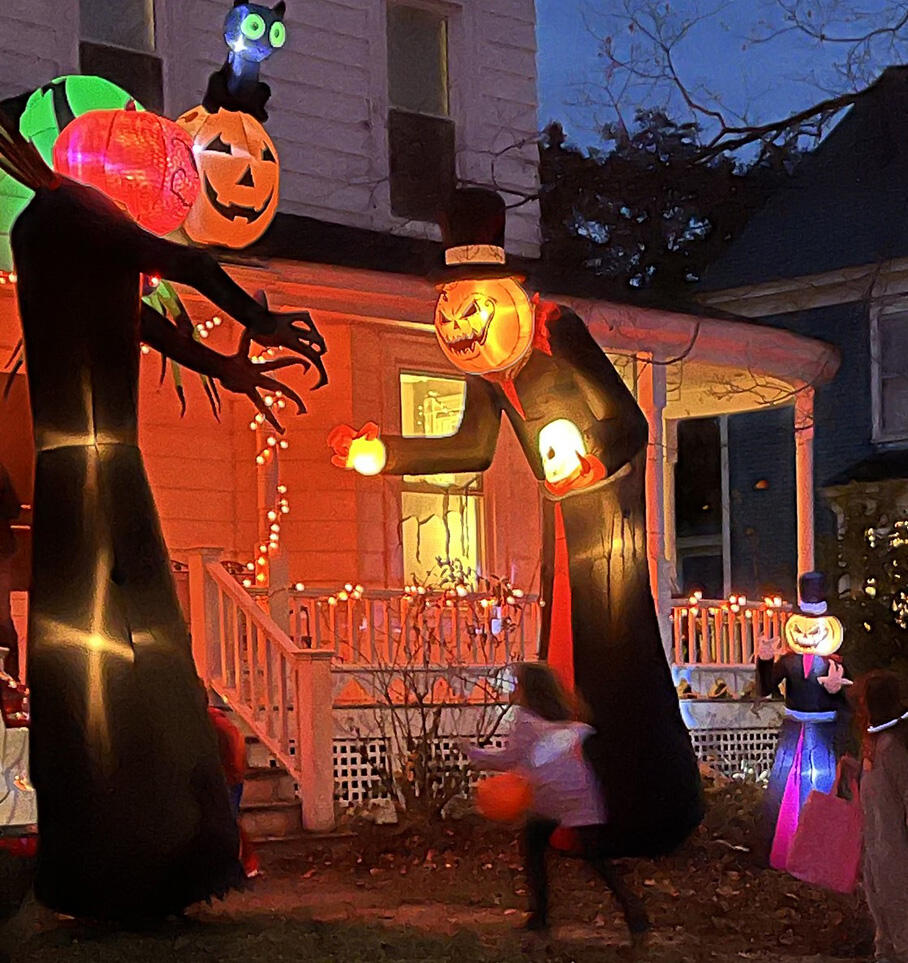
Introduction
Halloween, otherwise known as "All Hallows’ Eve" or "All Saints' Eve", is not a state holiday in Massachusetts.
The word Halloween does not appear in the laws of Massachusetts. However, Massachusetts does have laws that are especially relevant to Halloween. We will outline some of them below.
Widely celebrated on October 31st, Halloween "is at the beginning of the [Christian] observance of Allhallowtide, the time in the liturgical year dedicated to remembering the dead, including saints (hallows), martyrs, and all the faithful departed. In popular culture, the day has become a celebration of horror, being associated with the macabre and supernatural." (Source: Wikipedia)
Halloween is suspected of having pagan roots as well, relating to Celtic harvest festivals. Its revelry with scary costumes and its current focus on creatures dead, undead, and murderous makes it an uneasy fit in the Christian calendar or for a state holiday.
One may recall that even Christmas was forbidden in the Colony of Massachusetts Bay, whose laws stated (in 1659) that:
"For preventing disorders arising in several places within this jurisdiction, by reason of some still observing such festivals, as were superstitiously kept in other countries, to the great dishonor of God and offence of others: It is therefore ordered by this court and the authority thereof, that whosoever shall be found observing such day as christmas or the like…shall pay for every such offense five shillings…."
See our blog about the 17th century ban on Christmas.
The strict Puritan founders of the Colony of Massachusetts Bay would certainly have considered Halloween to be covered by the phrase "such festivals, as were superstitiously kept in other countries."
Ghosts, witches, monsters, and trick or treating are all part of modern Halloween fun.
Though it is not a state holiday, some aspects of Halloween still appear in the Massachusetts laws.
Haunted homes
For example, as provided in MGL c. 93, § 114, one cannot sell a haunted house without informing the prospective buyer, as long as they ask about it. (You have to tell the buyer if there has been a murder in the house, or if there has been any supernatural phenomena.)
So remember to ask if you are thinking of buying a house, or you may wind up living with a ghost or two.
Graveyards and remains
Graveyards and cemeteries feature in many scary Halloween scenarios. For general laws about cemeteries, see our law page on burial, cremation, and funerals.
Where would Frankenstein be without grave robbery and organ donorship? Both topics are covered in books held by our libraries, such as The Law of Human Remains, by Tanya Marsh (2016) [see especially the section on Massachusetts] and and Caring for the Dead, Your Final Act of Love, by Lisa Carlson (1998).
If a person removes or disinters a dead body, they can be punished by up to three years in the state prison. [MGL c. 272, § 71]
It is illegal to sell a dead body or body parts. This is punishable by up to two and a half years in jail. [MGL c. 272, § 72]
For some interesting articles about true life body snatchers in Massachusetts and how they led to our modern laws against it, see:
- Grave Robbery at the Pittsfield Common (2013)
- Harvard's Habeas Corpus: Grave Robbing at Harvard Medical School (2017)
- Grave Robbing is Illegal in Mass. A Secret Harvard Club is Partly to Thank (2022)
For legal organ donorship, however, see the “Uniform Anatomical Gift Act”, MGL 113A, §§ 1 et seq.
Witches
When it comes to witches, Massachusetts has an unparalleled legal history. Remember the Salem witch trials?
In 1692 more than two hundred people in Salem and the surrounding communities were accused of witchcraft in what can only be called a mania of witchcraft fear. Nineteen of these people, both men and women, were executed by hanging and one more was crushed under stones because he refused to file a plea of guilty or not guilty, until the governor finally put a stop to the trials. These people were found guilty based on what was called "spectral evidence", namely supernatural evidence invisible to most people, rather than scientific or empirical proof. Massachusetts never specifically made witchcraft legal, but stopped accepting spectral evidence in court, so no more people were convicted of witchcraft in Massachusetts. In modern times, the city of Salem has accepted its witchy history and has become a popular center for celebrating Halloween.
See our previous blogs about the Salem witchcraft trials:
- The Salem Witchcraft Trials
- Salem Witch Trials: Original Court Records
- Witchcraft law up to the Salem witchcraft trials of 1692
Werewolves
While it is not exactly specified, we can presume that it is unlawful to have a werewolf in one's house or to release it into the wild based on a Massachusetts law stating:
"No person shall possess, sell, trade, breed, import, export or release a wild canid hybrid or wild felid hybrid, except as otherwise provided by rules and regulations of the division." [MGL c. 131, § 77A]
So, no Cat People either.
Trick-or-treating
Vandalism. Halloween trick or treating is part of the fun. However, if tricks involve damage to property, that constitutes the crime of vandalism. [MGL c. 266, §§ 94-107]
Extortion. “Trick or treating” itself may be viewed as a form of extortion. The not-so-subtle implication is that unless you give a treat to the uninvited, masked intruders, they are likely to play a trick on you. [MGL c. 265, § 25]
It is a lesson in the limits of prosecutorial will to see how rarely this is taken seriously on Halloween.
Age limit. When are kids too old to go trick or treating? There is no Massachusetts state law limiting who can go trick or treating based on age, though municipalities may pass ordinances limiting how old one can be.
So far, we don’t know of any such town ordinances in Massachusetts, but one can always check one’s town ordinances or announcements regarding the celebration of Halloween.
As always, have fun, be safe, be kind. And Happy Halloween!

